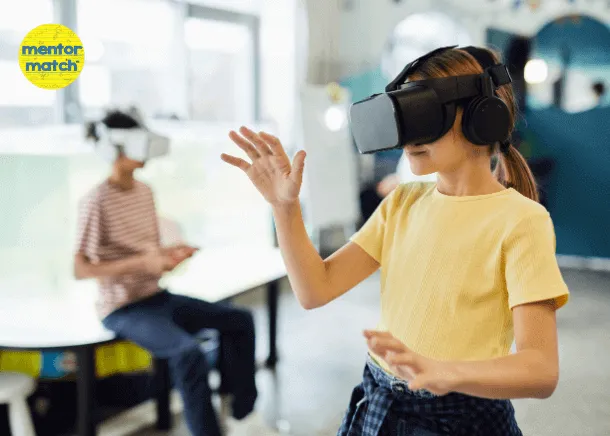
77.32% of parents see better grades in 3 months!
COVID-19 shook up the world of education in many ways, from virtual classrooms to interactive softwares to taking tests online. Whether these changes are positive or negative is yet to be determined, but one thing is certain: bringing technology to the forefront of education is extremely integral in today’s world! This has helped K-12 students become more familiar with and better at using online learning tools.
Using technology isn't limited to having an online classroom—it includes after-school services, online course help, as well as prepping for extracurriculars, tests and life beyond K-12 education. Whether it's doing research online, or taking private tutoring sessions online, or using engaging academic apps, or working together on digital projects, students are getting better at using tech to succeed in the real world.
Evolution of EdTech:
The scope of EdTech has gone from K-12 students simply using laptops to study, to schools installing softwares on larger scales for the entire student body to use. While these changes cost money—from providing devices (such as laptops and tablets) to students, to educating teachers and students on how to use the new systems in place—the process is getting cheaper and more integral to the education system.
Another big step in EdTech is using cloud services. This allows schools and students to store their data and apps online, instead of on their own computers. It's cheaper and easier to integrate. Lastly, many EdTech companies now charge schools a subscription fee instead of a big upfront cost. This means schools only pay for what they use, saving them money to take their institutions to the next level.
- Collaboration Tools: Schools can use collaboration tools like online whiteboards and video conferencing to help students work together better. These tools make it easier for students to communicate and collaborate on projects, whether they're in the same room or miles apart. At virtual tutoring platforms in the US, like Mentor Match, online tutors are skilled in using these tools to enhance their students’ personalized learning experiences.
- Gamification: Another interesting trend is the gamification of academics—where elements of games are used while teaching. This can make studying more engaging and motivating for students. In our online private tutoring sessions, our tutors have been incorporating gamification techniques to make learning fun, easy and effective.
- Virtual Reality: Schools across the US are also exploring virtual reality for educational purposes. VR can take students on virtual field trips or simulations, like visiting a museum or exploring outer space. It's a great way to make learning interactive and exciting.
Educational technology has the potential to improve on the original promise of the World Wide Web—for students to have the world in their hands, regardless of their physical location. Mary Teren, a high school science teacher in Cobb County, Georgia, teaches oceanography and astronomy. She believes that virtual reality (VR) can offer her students hands-on experiences in subjects where such opportunities are typically scarce. According to Teren, "This would be a game-changer, giving kids a tactile sense of space or the depths of the sea."
The EdWeek article further discusses how schools can utilize VR to teach subjects like robotics and medical arts. Teren sees VR experience as valuable training for students: "The technology is changing, and we need to try as much as we can to keep up with it."
Similar to VR, the metaverse provides a space where students can explore a virtual world that is constantly evolving. Roblox, a popular game in the metaverse, offers lesson plans for various subjects and grade levels, making it easy to integrate gamification into the classroom. The question isn't whether gamification will enter the K-12 classroom, but how schools will incorporate it.
Regardless of how K12 online learning is integrated, schools and parents have a responsibility to prioritize educational technology in implementation. It's not only important for student learning now, but also crucial for future success."
[K-12 education, EdTech USA, online learning US, gamification, virtual reality, educational technology, online tutoring US, future of education, K12 tutoring]



.png)
.webp)
.webp)